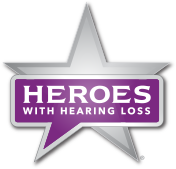Thoughts From a Veteran with PTSD
At this point, nearly everyone is familiar with the acronym PTSD, and that it stands for Post-Traumatic Stress Disorder. But how much do you really know about PTSD? Even those who suffer from it, like me, often begin with a misguided understanding that is muddled by conjecture and presumption rather than one founded in fact.
PTSD is a well-known psychiatric condition that commonly affects veterans, but it can occur in anyone, especially if they’ve witnessed or experienced a traumatic event. For veterans, those events often occur during wartime, but PTSD can also be the result of accidents, childhood traumas, sexual assaults and other injuries. Another common misconception is that PTSD has to occur from an event when in reality, it can also be the cumulative effect of trauma over time.
According to Psychiatry.org, “People with PTSD have intense, disturbing thoughts and feelings related to their experience that last long after the traumatic event has ended. They may relive the event through flashbacks or nightmares; they may feel sadness, fear or anger; and they may feel detached or estranged from other people. People with PTSD may avoid situations or people that remind them of the traumatic event, and they may have strong negative reactions to something as ordinary as a loud noise or an accidental touch.”
According to the U.S. Dept. of Veterans Affairs, the number of veterans afflicted with PTSD fluctuates based on when and where they served:
- Operations Iraqi Freedom (OIF) and Enduring Freedom (OEF): About 11-20 out of every 100 Veterans (or between 11-20%) who served in OIF or OEF have PTSD in a given year.
- Gulf War (Desert Storm): About 12 out of every 100 Gulf War Veterans (or 12%) have PTSD in a given year.
- Vietnam War: About 15 out of every 100 Vietnam Veterans (or 15%) were currently diagnosed with PTSD at the time of the most recent study in the late 1980s, the National Vietnam Veterans Readjustment Study (NVVRS). It is estimated that about 30 out of every 100 (or 30%) of Vietnam Veterans have had PTSD in their lifetime.
Those numbers far exceed the average incidence of PTSD occurrence among the civilian U.S. populace. “PTSD affects approximately 3.5 percent of U.S. adults every year, and an estimated one in 11 people will be diagnosed with PTSD in their lifetime,” says Psychiatry.org.
But here’s the thing – those of us with PTSD know that it is much more than numbers and statistics. It is a deeply personal challenge that can manifest in infinitely different ways, each as unique as the person for whom it occurs. For me, the most anxiety seems to come when I end up around too many people and I can’t adequately track their movements or assess their intent – or as my kids used to say, “Dad gets ‘sketchy’ at the mall.” When that happens, my brain starts to go into overdrive trying to keep up, my heart rate jumps through the roof until I can hear it in my ears, my breathing kicks up a notch to try and match it and things go pretty downhill from there. I used to just stay home and give everyone the old “I don’t like crowds” excuse. It wasn’t until I realized that I wasn’t the only one facing this challenge and reached out to others that I was able to fully understand how and why my body was reacting the way it was and learn some valuable coping mechanisms.
What some people also may not realize is that PTSD is a treatable condition and one that really needs to be addressed. If left untreated, the effects of PTSD can compound, especially if you layer social isolation on top of it. This combination can occur frequently for veterans with hearing loss, which is one of the top service-connected disabilities. A recent study shows that bilateral hearing loss is associated with a greater burden of PTSD for veterans.
What I know from personal experience is that a key factor to improving overall health outcomes for veterans with hearing loss is increased social connection. One recent study found that facilitating the development of social connections can actually help protect against the development of PTSD for veterans.
June is PTSD awareness month — there’s no time like the present for veterans to embrace their mental health care and seek treatment for PTSD. It made a world of difference for me, and it can make a significant difference for you, as well. For more information on social isolation, check out this brief we put together on hearing loss and social isolation.
Provided by Hamilton® CapTel®. Copyright ©2021 Hamilton Relay. Hamilton is a registered trademark of Nedelco, Inc. d/b/a/ Hamilton Telecommunications. CapTel is a registered trademark of Ultratec, Inc.
 Heroes With Hearing Loss
Heroes With Hearing Loss